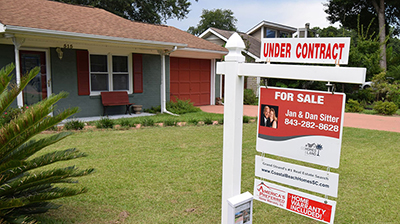
January Pending Home Sales Slump as Supply Tightens

Pending home sales fell for the third straight month, the National Association of Realtors reported Friday. Despite strong demand, tight supplies continued to hamstring activity.
The Pending Home Sales Index (www.nar.realtor/pending-home-sales), a forward-looking indicator of home sales based on contract signings, fell by 5.7% to 109.5 in January. Year-over-year, transactions fell by 9.5%. (An index of 100 is equal to the level of contract activity in 2001).
Regionally, only the West saw improvement; pending home sales there increased by 1.5% in January but fell by 9.7% from a year ago. In the South, pending sales fell by 6.3% to 134.6 and fell by 8.7% from a year ago.
In the Northeast, pending sales fell by 12.21% to 84.3 in January but improved by 16.7% decrease from a year ago. In the Midwest, the index fell by 5.9% to 104.4 and by the same percentage from a year ago.
Odeta Kushi, Deputy Chief Economist with First American Financial Corp., Santa Ana, Calif., said historically low supply of homes continue to drag down pending home sales.
“Demand remains relatively strong, pending home sales are higher than they were in January 2019 and January 2020,” Kushi said. “There are lots of interested potential buyers out there – but the supply of homes for sale remains at record lows.”
Kushi said buyers have also struggled with rising rates, “which all else held equal, reduce house-buying power. The reasons for the ongoing purchase demand – the demographics support it — millennials are forming households and are ready to make the lifestyle decisions that are highly correlated with buying a home. The desire for homeownership was only intensified by the pandemic and the ability to work from home.”
NAR Chief Economist Lawrence Yun said alongside persistent supply constraints, house hunters are contending with a number of additional market issues, including escalating home prices and rising interest rates. “Given the situation in the market – mortgages, home costs and inventory – it would not be surprising to see a retreat in housing demand,” he said.
Yun said he expects economic conditions to be volatile in the coming months, noting the impending conclusion of the Federal Reserve’s asset purchase program in March paves the way for higher interest rates. Additionally, Russia’s aggression in Ukraine is also likely to affect global oil supply, imposing further burdens on inflation and bringing about more aggressive rate hikes.
“There’s also the possibility that investors may flee toward safer U.S. Treasury bonds, which may result in temporary short-term relief to interest rates,” Yun said.
